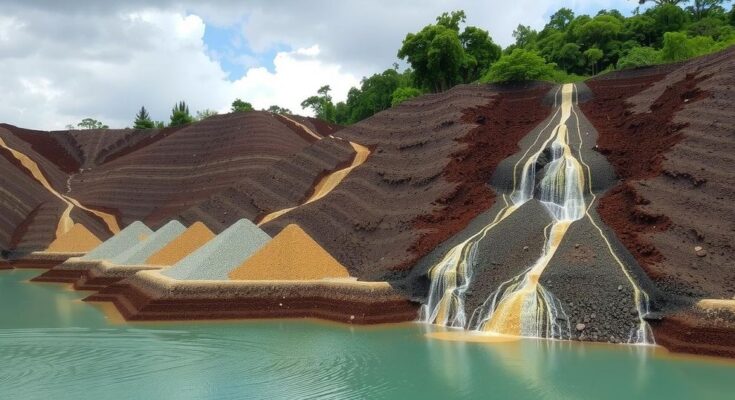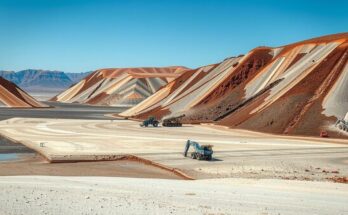El Salvador’s Legislative Assembly has approved a new mining law, allowing gold exploitation. The law, repealing a previous mining ban, grants the state a monopoly over metallic mining and invites foreign investment in joint ventures. While the government hopes to tap into an estimated $3 trillion in gold reserves to boost the economy, environmental activists express significant concerns over potential ecological harm and the accuracy of the claimed reserves.
On Monday, El Salvador’s Legislative Assembly enacted a new metallic mining law, allowing the country to exploit its gold resources. This legislative change, previously hinted at by President Nayib Bukele, replaces the mining ban established by previous regulations and establishes a state monopoly over metallic mining activities. The new law aims to facilitate partnerships with foreign companies for resource extraction, with the government asserting that the country possesses a $3 trillion gold reserve that could significantly enhance its economy.
The recently introduced General Mining Law empowers the Salvadoran state to create institutions for managing mining operations or form joint ventures with private entities. President Bukele decried the prior prohibition on mining, labeling it “absurd,” while suggesting that properly utilizing the nation’s mineral wealth is crucial for enhancing the quality of life for the population while maintaining environmental standards.
However, this initiative has faced staunch opposition from environmental activists, who voice concerns over its potential ecological repercussions. According to Andrew McKinley, an environmentalist, the extraction processes required could lead to significant degradation of the landscape, warning that it could make El Salvador resemble the Moon with craters upon hasty implementation. Furthermore, skepticism surrounds the veracity of Bukele’s gold reserve claims. Pedro Cabezas, an advocate from Acafremin, asserts that the gold quantity may be overstated, reflecting a broader distrust of the official data provided by the government. Bukele has invited international geologists to further investigate the potential of El Salvador’s gold deposits, amidst ongoing discourse regarding the sustainable approaches to resource management in the region.
The recent approval of the new mining legislation in El Salvador marks a significant shift in the country’s approach to mineral resource management. Previously, strict bans on mining were in place to protect the environment amid concerns over sustainable practices and potential ecological degradation. President Nayib Bukele’s government, however, asserts the necessity of utilizing the nation’s gold reserves to stimulate economic growth, particularly in light of existing challenges faced by the Salvadoran economy. This legislation reflects a balance between economic ambitions and environmental considerations, underscored by extensive debate among stakeholders.
In summary, the approval of El Salvador’s new metallic mining law represents a controversial yet pivotal shift in the country’s resource management strategy. While the government argues that exploiting its gold reserves could lead to economic revitalization, environmentalists caution against the potential degradation of natural landscapes and resource mismanagement. The discourse surrounding the legislation reflects broader tensions between economic development and environmental stewardship—issues that will require careful navigation moving forward.
Original Source: news.bitcoin.com




